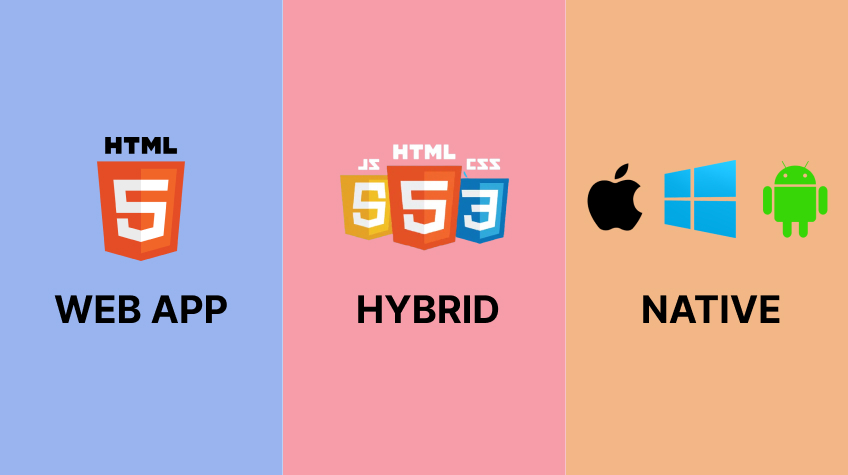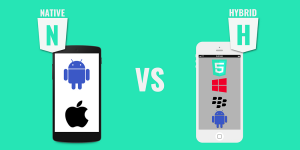
If you want to track your health, manage your money, or get the latest news, there’s an app for almost everything. But when making an app, picking the right way can change how users feel about it, how long it takes to make it, and how much it costs. App Development Companies are frequently confronted with the basic choice: would it be advisable for them to go web app, a native app, or opt for the best of both worlds with a hybrid app?
In this guide, we’ll find Web-App vs Native vs Hybrid applications, gauging their pros and cons to assist you with figuring out which one is the ideal decision for your project.
What is a Web App?
A web application is a program that you use in a web browser. Unlike regular programs that you install on your computer, you can use web apps on any device just by going to a website.
Key Characteristics of Web Apps
Platform Independence: Since they run in a program, web applications are platform-independent and can be gotten to utilizing different working frameworks, like Windows, macOS, Linux, or portable mobile OS like Android and iOS.
No Installation: Users don’t need to download or install web apps on their devices. They simply visit a URL to access the application.
Centralized Updates: Developers can refresh the web application on the server side, so clients generally access the latest variant without expecting to refresh anything on their end.
Accessible from Anywhere: As long as clients have an internet connection and a browser, they can get to the web application from any place on the planet.
Responsiveness: Numerous cutting-edge web applications are intended to be responsive, meaning they change their format and usefulness in view of the device being utilized, offering a consistent experience across desktops, tablets, and smartphones.
Browser Limitations: Web applications work inside the imperatives of the web browser, meaning they probably won’t have similar admittance to framework assets or particular equipment as local applications.
Pros:
- Cross-Platform: Works on any device with a web browser.
- Updates: Easily update without requiring users to download anything.
- Cost: Typically cheaper and faster to develop than a native app.
Cons:
- Performance: Might not be as fast or smooth as a native app.
- Access: Limited access to device-specific features (though this gap is narrowing).
- Offline: Functionality might be limited without an internet connection.
What is a Native app?
A native app is a software application built in a specific programming language, for the specific hardware and software platform, either iOS or Android. Native apps are designed and optimized to run on a particular operating system, leveraging its inbuilt features and optimizing performance.
Key Characteristics of Native Apps
Platform-Specific Language: Native apps are written using platform-specific programming languages.
iOS: Swift or Objective-C
Android: Kotlin or Java
High Performance: Since they’re enhanced for a particular platform, native apps commonly offer the best execution contrasted with different kinds of applications.
Access to Device Features: Native apps can straightforwardly get to a device with all capacities, like the camera, microphone, accelerometer, GPS, and so forth.
Distribution via App Stores: Native apps are normally conveyed through stage explicit stores, similar to the Apple Application Store for iOS or the Google Play Store for Android.
Consistent Look and Feel: It can without much of a stretch keep the particular plan rules of their individual stages, guaranteeing a reliable client experience.
Installation Required: Users need to download and install native apps on their devices.
Regular Updates: For any changes or fixes, developers need to release updates that users must download and install.
Pros:
- Performance: Generally faster and more efficient since they are optimized for a specific platform.
- Features: Full access to the device’s capabilities and hardware.
- Look & Feel: Seamless integration with the platform’s UI/UX guidelines.
- Offline Capabilities: Can function offline.
Cons:
- Development Cost: Typically more expensive and time-consuming. Separate development is required for each platform (iOS, Android).
- Updates: Require users to download and install updates.
What is a Hybrid app?
A hybrid app is a type of mobile application that is developed using web technologies like HTML, CSS, and JavaScript but is encapsulated within a native app shell or wrapper. This native shell allows the web-based application to be installed and run on a device just like a native app and to access native device features.
Key Characteristics of Hybrid Apps
Cross-Platform: A solitary codebase can be utilized to make applications for various stages (like iOS, Android, and Windows).
Access to Native Features: With the assistance of native plugins, hybrid apps can access device-specific functionalities such as the camera, GPS, contacts, etc.
Web Technology Core: Built primarily using web technologies which are then rendered using a web view embedded in a native shell.
App Store Presence: Hybrid apps can be distributed through app stores, just like native apps.
Performance: While hybrid apps can be slower than native apps due to the added layer of the web view, advances in technology have bridged the gap considerably.
Pros:
- Cross-Platform: One codebase that can be deployed on multiple platforms.
- Cost: Potentially cheaper than developing multiple native apps.
- Access: Can access some device-specific features using plugins.
Cons:
- Performance: This can be slower than native apps, though this depends on the technology used.
- Look & Feel: Might not feel as integrated or smooth as native apps on all platforms.
- Limitations: Might not have access to all device-specific features or the latest platform innovations.
The decision between Web-App, Native, and Hybrid app development often hinges on the specific needs and objectives of a business or individual. Each approach comes with its unique set of advantages and trade-offs. Web-Apps offer universal accessibility across platforms, Native apps ensure optimized performance and access to device-specific features, while Hybrid solutions strike a balance between platform flexibility and native functionality. It’s imperative to thoroughly understand these nuances and consult with an expert App Development Company to make an informed choice. By doing so, one can ensure a more streamlined user experience, cost-effective development, and the longevity of the application in the competitive market.






